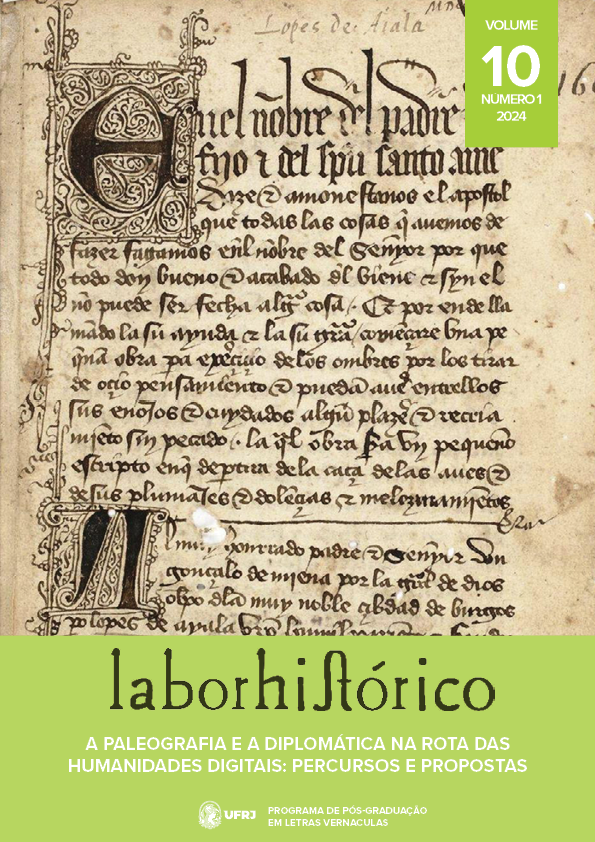Imago as political identity: The Royal Seals of the Kingdom of Portugal
DOI:
https://doi.org/10.24206/lh.v10i1.63287Parole chiave:
Sigillography; Royal seals; Medieval monarchy; Portugal.Abstract
In this text, the author contextualizes the use of Portuguese royal seals in the medieval centuries, observing their aesthetic composition and the political and symbolic significance of the respective imagery, predominantly heraldic, a discourse that is only broken in the seals of some queens. Portuguese royal seals are pieces that project notions and meanings that are strongly symbolic and have a consistent abstract representation about the conception and nature of majestic power in the monarchy of medieval Portugal. The structural lines of Lusitanian royal sigilography are exposed, in which the non-existence of the seal of majesty stands out, and conjunctures or cycles of originality are defined, compared to the European royal chancelleries of those centuries, and exceptions, as is the case with the conjunctural use of the seal equestrian only between the reigns of kings Afonso III and Fernando I (1248-1383).
Downloads
Riferimenti bibliografici
.
##submission.downloads##
Pubblicato
Fascicolo
Sezione
Licenza
Copyright (c) 2024 Saul A. Gomes

Questo lavoro è fornito con la licenza Creative Commons Attribuzione - Non commerciale 4.0 Internazionale.
Os autores que publicam nesta revista concordam com o seguinte:
a. Os autores detêm os direitos autorais dos artigos publicados; os autores são os únicos responsáveis pelo conteúdo dos trabalhos publicados; o trabalho publicado está licenciado sob uma Licença Creative Commons Atribuição-NãoComercial 4.0 Internacional, que permite o compartilhamento da publicação desde que haja o reconhecimento de autoria e da publicação pela Revista LaborHistórico.
b. Em caso de uma segunda publicação, é obrigatório reconhecer a primeira publicação da Revista LaborHistórico.
c. Os autores podem publicar e distribuir seus trabalhos (por exemplo, em repositórios institucionais, sites e perfis pessoais) a qualquer momento, após o processo editorial da Revista LaborHistórico.


